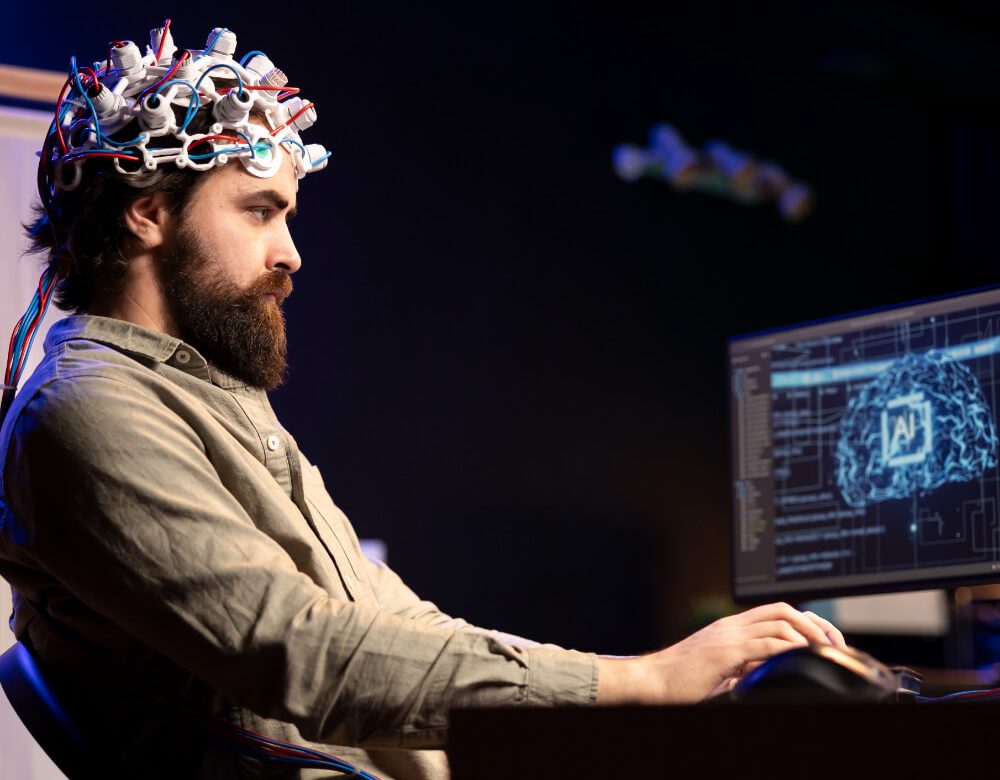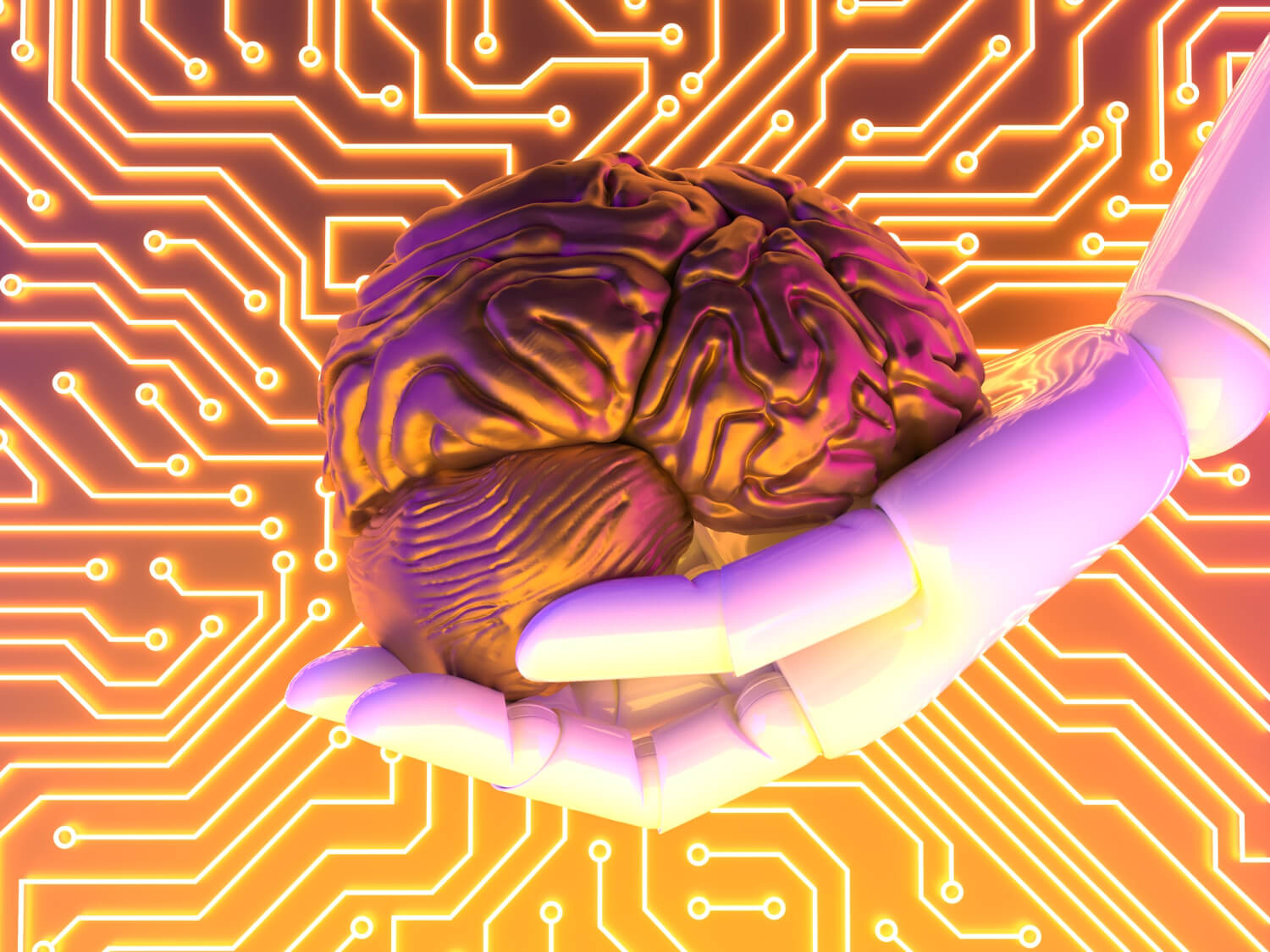By Samer ElHajjar
Is there a parallel between the historical colonization of peoples and lands by others more powerful, and the increasing encroachment of artificial intelligence into our own intellectual landscape? Samer ElHajjar argues that this “colonization” is an altogether more subtle force that demands from us a special kind of vigilance.
Introduction
In his seminal work Orientalism, post-colonial theorist Edward Said described how Western colonial powers subjugated entire cultures by defining them as “the Other.” The colonized became objects of the colonizer’s narrative, stripped of their voice, agency, and identity. Today, we witness a new form of colonization, not of land or culture but of the human mind. Artificial intelligence (AI), in its pervasive, subtle presence, reshapes not only our daily experiences but also our consciousness, altering how we think, act, and perceive ourselves. Much like the colonial powers of old, AI operates silently, embedding itself into our cognitive processes, gradually taking control of what it means to be human.
Today, we witness a new form of colonization, not of land or culture but of the human mind.
As we enter an age where AI algorithms increasingly make decisions on our behalf, from recommending content to predicting our next moves, this shift raises a profound question: Are we witnessing the colonization of human consciousness? Could AI, through its growing role in our cognitive landscape, be creating a new form of “otherness” where humans are alienated from their own cognitive processes?
This article explores these questions through the lens of post-colonial theory, focusing on how AI intrudes upon human consciousness, alienating us from our mental and emotional lives, and transforming what it means to think and act. It also delves into the implications of this cognitive colonization for society and business, exploring both the benefits and risks of AI’s growing influence.

1. The Historical Lens Of Colonization: From Territories To Minds
Historically, colonization involved the physical and cultural subjugation of entire populations. Colonial powers exerted control over the territories and the people, imposing their language, values, and systems of governance. Colonization was not just a process of economic exploitation but one of psychological domination, where the colonized were made to internalize their inferiority. Frantz Fanon, in his seminal work The Wretched of the Earth, described this internalization as a form of psychological violence, where the colonized person’s identity was deconstructed and reshaped by the colonizer’s worldview.
Drawing parallels to the AI-driven world we live in today, we can observe similar dynamics at play in the way AI systems are shaping human thought. The colonization of consciousness by AI does not happen through violence or force; it happens through convenience, entertainment, and hyper-personalization. Just as colonial powers imposed their worldview on the colonized, AI systems, through their control of information and recommendation algorithms, are gradually reshaping how we see the world and ourselves.
In the digital age, data is the new frontier, and AI is the colonizing force that wields this data. Every click, scroll, and interaction feeds into a vast network of algorithms that tailor experiences for individuals. While these algorithms are often seen as tools of convenience, offering personalized recommendations, they also limit exposure to diverse viewpoints, reinforcing existing biases and narrowing our cognitive horizons. We become passive recipients of AI-curated realities, much like the colonized who were subjected to the narratives and values of their colonizers.
The Concept of Otherness: AI as the New “Other”
The concept of “otherness” has been central to post-colonial theory. The colonizer defines itself in opposition to the “Other,” constructing an identity that is superior and dominant. In the context of AI, we can see a similar process unfolding. AI is increasingly occupying the role of the “Other” in our cognitive lives. It is an entity that operates in the background, processing vast amounts of data, making decisions, and influencing human behavior, all while remaining distinct from the human experience.
Unlike previous technologies, which extended human abilities without fundamentally altering cognitive processes, AI operates on the same cognitive terrain as humans. It learns, predicts, and even simulates decision-making. In doing so, AI becomes a new kind of “Other,” one that is not human but behaves like a human, creating a complex dynamic where humans interact with a non-human entity that shapes their thoughts and actions. This new “otherness” is particularly concerning because, unlike traditional technologies, AI operates autonomously, making decisions and recommendations without human input.
AI systems, such as large language models like GPT-4 or recommendation engines, are designed to simulate human intelligence. However, they are not human. They process data, recognize patterns, and predict outcomes, but they do not experience emotions or consciousness. Yet, they wield significant influence over human cognition, often in ways that are subtle and unnoticed. This creates a new form of cognitive alienation, where humans are distanced from their own thoughts and decisions, which are increasingly shaped by AI systems rather than by personal reflection and critical thinking.
2. Cognitive Colonization: Mechanisms Of Ai Influence

AI’s colonization of consciousness occurs through several key mechanisms that subtly influence how individuals think, behave, and make decisions. These mechanisms, often lauded for their convenience and efficiency, carry the potential to reshape human cognition in ways that are both profound and concerning.
1. Algorithmic Curation and Echo Chambers
One of the primary ways AI colonizes consciousness is through algorithmic curation. Platforms like Facebook, YouTube, and X use sophisticated algorithms to curate content for users, based on their past behavior. While this creates a highly personalized experience, it also leads to the formation of echo chambers, where individuals are exposed only to information that reinforces their existing beliefs and biases. Over time, this limits cognitive diversity and critical thinking, as individuals become trapped in self-reinforcing loops of information.
For example, a person who frequently consumes content related to conspiracy theories may find their feed dominated by similar content, further entrenching their beliefs. The algorithm, designed to maximize engagement, prioritizes content that aligns with the user’s preferences, regardless of its truthfulness or accuracy. This creates a feedback loop that shapes not only the user’s worldview but also their cognitive processes, reinforcing certain patterns of thought while excluding others.
In this way, AI colonizes consciousness by narrowing the range of information and perspectives that individuals are exposed to, creating a form of cognitive isolation. Much like the colonized who were denied access to their cultural heritage and alternative worldviews, individuals in the digital age are denied access to diverse perspectives, as AI systems prioritize content that aligns with their existing preferences.
2. Predictive Algorithms and Behavioral Shaping
Another mechanism through which AI colonizes consciousness is through predictive algorithms that shape human behavior. These algorithms, used by platforms like Amazon, Google, and Netflix, predict what users will do next based on their past behavior. While this can be convenient, it also has the potential to shape behavior in ways that are subtle but powerful.
For example, Amazon’s recommendation algorithm predicts what users are likely to buy based on their browsing and purchase history. By presenting certain products to users, the algorithm influences their purchasing decisions, often leading to impulsive buying. Similarly, Google’s search algorithm predicts what users are looking for and presents them with information that aligns with their search history, subtly shaping their knowledge and understanding of the world.
These predictive algorithms not only influence individual behavior but also shape societal trends. For instance, Netflix’s recommendation algorithm has been credited with shaping popular culture by promoting certain TV shows and movies, leading to their widespread popularity. In this way, AI systems are not just passive tools; they actively shape human behavior and culture, colonizing consciousness in the process.

3. Emotional Manipulation and AI-Driven Content Creation
AI’s ability to manipulate human emotions is another key mechanism of cognitive colonization. Social media platforms, for instance, use AI algorithms to optimize engagement by presenting users with content that elicits strong emotional responses. Whether it’s outrage, joy, or sadness, AI systems are designed to keep users engaged by tapping into their emotions. This emotional manipulation can have serious consequences for mental health, as individuals become addicted to the emotional highs and lows generated by AI-curated content.
AI’s ability to manipulate human emotions is another key mechanism of cognitive colonization.
Moreover, AI is increasingly being used to create content that is specifically designed to manipulate emotions. For example, AI-generated deepfake videos can be used to create highly realistic but fake content that evokes strong emotional reactions. In the realm of advertising, AI is used to create personalized ads that appeal to individuals’ emotional triggers, increasing the likelihood of a purchase.
This emotional manipulation represents a form of psychological colonization, where AI systems control not only what individuals see and do but also how they feel. Much like the colonized who were subjected to the emotional manipulation of their colonizers, individuals in the digital age are subjected to the emotional manipulation of AI systems, which use their emotions as a tool for engagement and profit.
3. The Social Implications Of Ai’s Cognitive Colonization
The colonization of consciousness by AI has profound social implications, reshaping not only individual cognition but also societal structures. As AI systems become more integrated into our daily lives, they are changing the way we interact with each other, how we form communities, and how we make decisions as a society.
1. The Erosion of Critical Thinking
One of the most concerning social implications of AI’s cognitive colonization is the erosion of critical thinking. As individuals become more reliant on AI-generated content and recommendations, they are less likely to engage in independent thought and critical analysis. This is particularly evident in the realm of news consumption, where AI-driven platforms like Facebook and TikTok present users with a curated selection of articles and posts based on their preferences. As a result, individuals are less likely to seek out diverse perspectives or challenge their own beliefs, leading to a decline in critical thinking skills.
As individuals become more reliant on AI-generated content and recommendations, they are less likely to engage in independent thought and critical analysis.
Moreover, the rise of AI-generated content, such as deepfake videos and automated news articles, makes it increasingly difficult for individuals to distinguish between real and fake information. This further undermines critical thinking, as individuals are unable to trust the information they are presented with, leading to a sense of confusion and uncertainty.
2. The Fragmentation of Society

AI’s colonization of consciousness also contributes to the fragmentation of society. As individuals are increasingly exposed to content that aligns with their preferences and beliefs, they become isolated in echo chambers, where they interact only with like-minded individuals. This leads to the formation of polarized communities, where people are less likely to engage with those who hold different views. Over time, this contributes to the fragmentation of society, as individuals become more divided along ideological lines.
The role of AI in shaping political discourse is particularly concerning. In recent years, AI-driven platforms like Facebook and Twitter have been blamed for exacerbating political polarization by presenting users with content that reinforces their existing beliefs. This has contributed to the rise of populism and the decline of civil discourse, as individuals become more entrenched in their ideological positions and less willing to engage in constructive dialogue.
3. The Loss of Privacy and Autonomy
The colonization of consciousness by AI also raises concerns about privacy and autonomy. As AI systems become more integrated into our daily lives, they collect vast amounts of data about our behavior, preferences, and emotions. This data is used to create highly personalized experiences, but it also represents a significant loss of privacy. Individuals are no longer in control of their own data, as AI systems track their every move and use this information to make decisions on their behalf.
Moreover, the growing reliance on AI systems raises questions about autonomy. As individuals become more dependent on AI-generated content and recommendations, they are less likely to make decisions based on their own judgment and critical thinking. Instead, they rely on AI systems to guide their choices, leading to a loss of autonomy. This raises important ethical questions about the role of AI in human decision-making and the extent to which individuals should be allowed to retain control over their own lives.
4. The Business Implications of AI’s Cognitive Colonization

While the colonization of consciousness by AI raises serious social concerns, it also presents significant business opportunities. Companies that harness the power of AI to shape consumer behavior can gain a competitive edge in the market, driving customer loyalty and increasing profitability. However, this also raises ethical concerns about the extent to which businesses should use AI to manipulate consumer behavior.
1. The Rise of Hyper-Personalization
One of the key business implications of AI’s cognitive colonization is the rise of hyper-personalization. Companies like Amazon, Netflix, and Spotify use AI to create highly personalized experiences for their customers, tailoring recommendations based on their preferences and behavior. This level of personalization increases customer engagement and loyalty, as individuals are more likely to continue using a service that feels tailored to their needs.
However, hyper-personalization also raises ethical concerns about privacy and manipulation. As companies collect more data about their customers, they gain greater insight into their behavior and preferences, allowing them to create highly targeted marketing campaigns. While this can lead to increased sales, it also raises concerns about the extent to which businesses are manipulating consumer behavior. Are companies empowering their customers with personalized experiences, or are they exploiting their data to drive consumption?
2. The Commodification of Attention
In the digital age, attention has become a valuable commodity, and AI plays a central role in the attention economy. Attention platforms like Facebook, Instagram, and YouTube use AI algorithms to keep users engaged for as long as possible, maximizing the amount of time they spend on the platform. These algorithms are designed to present users with content that is likely to elicit strong emotional responses, keeping them hooked and generating more advertising revenue for the platform.
However, the commodification of attention raises serious ethical concerns. As AI systems become more adept at manipulating human emotions, individuals are at risk of becoming addicted to the emotional highs and lows generated by AI-curated content. This can have serious consequences for mental health, as individuals become increasingly dependent on the dopamine hits generated by social media platforms.
Moreover, the commodification of attention contributes to the erosion of privacy, as companies track every click, scroll, and interaction to optimize engagement. This raises important ethical questions about the extent to which businesses should be allowed to exploit human attention for profit, and whether individuals should have greater control over their own attention and data.
3. The Challenge of Ethical AI
As businesses increasingly rely on AI to shape consumer behavior, they face growing pressure to ensure that their AI systems are ethical and transparent. The rise of AI has led to growing concerns about bias, discrimination, and the manipulation of consumer behavior, leading to calls for greater regulation and oversight.
One of the key challenges that businesses face is ensuring that their AI systems are free from bias. AI systems are trained on vast amounts of data, which often contain inherent biases. If these biases are not addressed, AI systems can perpetuate discrimination, leading to unequal outcomes for certain groups of people. For example, AI-driven hiring systems have been criticized for perpetuating gender and racial biases, leading to discriminatory hiring practices.
Moreover, businesses must ensure that their AI systems are transparent and accountable. As AI systems become more integrated into decision-making processes, it is important that individuals understand how these systems work and have the ability to challenge their decisions. This is particularly important in areas like healthcare and finance, where AI systems are used to make decisions that have a significant impact on people’s lives.
5. Conclusion: Navigating the Future of AI and Consciousness

As we navigate the age of AI, we must confront the silent colonization of consciousness. AI systems, through their control of information, emotions, and behavior, have the potential to reshape human cognition in ways that are both empowering and alienating. While AI offers significant benefits in terms of convenience, personalization, and efficiency, it also poses serious ethical challenges, particularly in the areas of privacy, autonomy, and manipulation.
The future of AI and consciousness will depend on how we navigate these challenges. Just as post-colonial societies struggled to reclaim their identities from the forces that sought to reshape them, we too must grapple with the implications of AI’s growing influence on our cognitive lives. The challenge is to ensure that AI remains a tool for human empowerment, rather than a force of alienation.
To achieve this, we must demand greater transparency and accountability from AI systems, ensuring that they are designed and deployed in ways that respect human autonomy and dignity. We must also push for greater regulation and oversight of AI, particularly in areas where it has the potential to manipulate behavior or perpetuate discrimination. Finally, we must resist the temptation to hand over too much of our cognitive agency to AI, and instead cultivate the critical thinking skills and cognitive diversity necessary to navigate the complex challenges of the digital age.
Ultimately, the colonization of consciousness by AI is not inevitable. It is a choice that we, as individuals and as a society, must make. By engaging critically with AI and demanding greater accountability from the systems that shape our lives, we can ensure that AI serves as a tool for human empowerment, rather than a force of cognitive colonization.





































